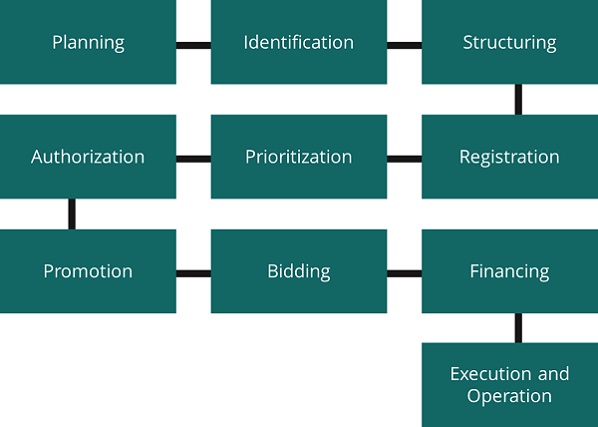Telecommunications
Institutional Arrangement
Is a Federal Government entity and represents the sectorial authority, responsible for promoting adequate communications and transport networks to contribute to services accessibility, and cope with globalization trends.
As of November 2020, it was decided to remove the Undersecretariat of Communications from the organic structure, thus leaving the Secretariat of Communications and Transportation as responsible for complying with the powers in the field of telecommunications and technological development.
Decentralized entity that provides basic telecommunications, telegraphic and money transfer services to the population, government agencies and enterprises throughout country.
Independent regulatory institution responsible for the efficient development of telecommunications and broadcasting services, including the regulation, promotion and supervision of the operation of the radio electric band, public networks, telecommunication, broadcasting services, and access to infrastructure.
Decentralized public entity in charge of using space science and technology to meet the needs of the Mexican population and generate jobs with high added value, promoting innovation and development of the space sector; contributing to the competitiveness and positioning of Mexico in the international community, in the peaceful, efficient and responsible use of space.
Decentralized public entity in charge of helping to improve the coverage and quality of Internet and telephony services, supervising the installation of the Shared Network and promoting investments for telecommunications infrastructure deployment projects.
The MEXSAT System is a comprehensive, high-tech and complex satellite communications system integrated by specialized state-of-the-art equipment, which allows the provision of satellite capacity and services in the national territory, patrimonial sea and regions bordering the nation (Central America and northern South America.
CFE Telecomunicaciones and Internet para Todos aims to provide and provide non-profit telecommunications services to guarantee the right of access to information and communication technologies, including broadband and internet. As well as the ability to provide technological goods and services including development of computer and telecommunications systems, as well as any other asset related to the development and support of said systems.
Federal government program that seeks to make possible the integration of the population to internet technology and mobile telephony throughout the national territory, extending financial inclusion and ensuring the possibility of taking all Social Welfare programs directly to the beneficiaries.
It is a modern 4.5G mobile voice and data broadband network, which with its infrastructure and connectivity transforms the 700 MHz spectrum into greater coverage and capacity, at the best cost.
Investment Cycle

Planning
SCT establishes short, medium and long term sectorial programs for the development of communications infrastructure, according to the objectives and strategies defined by the National Development Plan and the Infrastructure Investment Program for Transport and Communications 2013 – 2018.
Identification
The Undersecretary of Communications identifies the needs of the sector to carry out communication infrastructure projects.
Structuring
The Undersecretary of Communications prepares, by itself or by means of third parties, the necessary pre-investment studies and analysis, required for the development of communications projects.
The Communications Sub-Secretariat elaborates, by itself or supported by outside consultants, the necessary studies and analysis for the communications projects development.
Registration
For those projects that require federal funds, SCT presents a registration application to the Investment Unit of the Ministry of Finance.
Prioritization
The CIGFD will evaluate the projects that require the allocation of federal funds, and will decide its inclusion in the draft of the annual expenditure budget. Additionally, this commission will determine the prioritization of the projects based on a) socioeconomic profitability; b) its impact in extreme poverty reduction; c) regional development, and d) concurrence with other programs and investment projects.
Authorization
- Projects that require federal funds are authorized by the House of Representatives.
- The IU will issue an opinion of economic viability for those projects that do not require public resources.
Promotion
The General Direction of Telecommunications and Broadcasting Policy of SCT is responsible for the promotion of the projects.
Bidding
The bidding process is responsibility of SCT and/or IFT, depending on the project type. All processes must be registered in CompraNet.
Financing
Different sources of funds are available for the projects, depending on their particular characteristics and their financial structure, including federal funds or PEF, and funds from BANOBRAS, commercial banks, institutional and private developers, and from institutional investors.
Execution and Operation
Project developers are responsible for the proper execution, as well as of the operation of the projects, under the SCT and IFT supervision as regulatory authorities.


